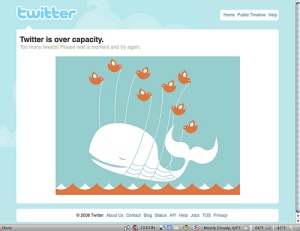 Let me be clear, I do not love failing. I also do not love looking silly or dumb, but I do have some experience with both, and frankly to progress far, you are probably going to have to face the risk you might fail and decide what that means to you.
Let me be clear, I do not love failing. I also do not love looking silly or dumb, but I do have some experience with both, and frankly to progress far, you are probably going to have to face the risk you might fail and decide what that means to you.
I know that the fear of failure and the fear of looking dumb holds too many of us back.
I believe this often happens as a result of incorrectly weighing the risk/benefit and also because we do not have a strategy. I have lots of stories I could share about looking dumb and failing, but the one I was reminiscing about today was my experiences with high school sports.
This story begins my freshman year of high school. Not only was I a freshman, I had just turned 13, having just skipped eighth grade. I was also new, having recently moved to a town that was so small, we quite literally, did not have Family Feud. To say I was awkward and bookish, would be the polite description of my thirteen year old self.
In this small town, sport-abilities were one of the key indicators of cool, as school sports were one of the only things to do (the other notable accomplishment for girls tended to be teen pregnancy). So, while I loved staying home reading books, I did not want to be a complete social outcast, and so I knew I had to take up sports.
I had a [very] few things going for me :
- I was female in a town that didn’t see many new girls, so I was instantly attractive
- The try out process for joining sports teams involved showing up for practice, as filling a roster was such a risk everyone was welcome
- I was a freshman, so expectations were generally low, and I had one year to get my act together with some limited immunity
- I was willing to work really hard
of course, I was terrible.
This is not an attempt at being humble, this is literal fact. I was so bad at basketball, that in my sophomore year, my step-father quite strongly stated he would not let me play, as he was sick of being embarrassed attending the games.
Failing and surviving at sports taught me real world skills that I still use regularly today.
Here are some things I think are important when challenging ourselves to learn new things to combat that fear of failure
- Make it safe but still do it. Set yourself up for some success. By using my freshman year as my opportunity I had very little to lose. I was new, I didn’t have friends or a known reputation. It is so important to find a safe place to practice new skills. These safe environments are not things that typically get handed to us, we need to make them happen and be sure to seize the opportunity when they do.
- Get people who support you. My family was supportive and encouraging, well until they had to pull the plug on the basketball thing…
- Have people who will tell you when it just isn’t working. At some point you need to know if you might just be going too far afield of your capabilities. Keep those people who will tell you that close. They are the people you need in your life.
- Give yourself permission to look bad. This one is the hardest I think. You have to come to terms with the fact that you might look bad, you might also look brilliant. It might be a steady progression from bad to brilliant, or you might mostly look bad and occasionally look brilliant. If it is a fear of looking bad that is holding you back what do you think the consequence of that will be? Will you think less or yourself? Why is it so important to never look bad?
Having survived my year of sport suffering, I have since learned that my athletic abilities are actually quite average. Against those who have never suffered such a freshman year and self-selected away from sports, I look coordinated, next to natural athletes I look like a hack, but I have learned to love sports (especially those without competition).
I have also learned that I can successfully accomplish things that are outside of my comfort zone, if I want it badly enough. I now know that, while I might fail and I might look bad, I also might find a new skill, gain a new hobby and obtain a new professional opportunity as a result of being willing to risk failure.
You see, I might not always be skilled, but I know I can be brave and I will work hard and those two things give me a bigger advantage than being good at basketball could have given me.
And for the post script of my story, starting my sophomore year, I got a chance to be statistician for the boys varsity basketball team instead of playing on the girls JV team. This was a double win for me, I took a typing class instead of doing basketball practice (a skill that improves my life every day), I got to attend all the games [traveling with the guys not the girls team], and I actually had natural abilities with a pencil.
I wish you all the confidence to risk failure. Remember it is not the absence of fear that makes someone brave, it is facing that fear that makes us brave.
____________________________
Update 1/7/2009 — Art Petty has an excellent article on leadership and fear here that is well worth the read if you are interested in this topic.
 I’ve come to realize that I have been unintentionally misled as far as the golden rule is concerned.
I’ve come to realize that I have been unintentionally misled as far as the golden rule is concerned.

